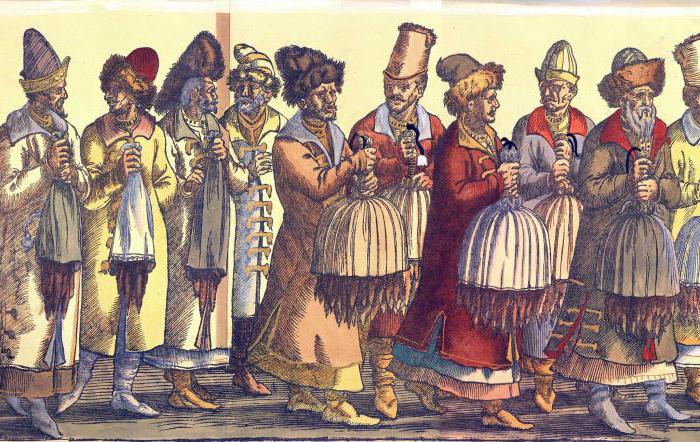Surely, when reading Russian historical or fiction, you came across the short and capacious word "yasak". It is not always clear from the context what it means. Therefore, we will devote this article to an analysis of its meaning and history.
Definition of a concept
In short, yasak is a tax. In Russia, it was a natural tax (that is, it was paid not with money, but with some goods, products), which was collected from the indigenous peoples of the Volga region (XV - XVIII centuries), as well as Siberia and the North (XV - early XX centuries. )
We also consider the definitions of this word in popular dictionaries. Yasak is:
- According to Efron and Brockhaus : a synonym for the word "tribute" in Turkic and Mongolian dialects. Usually it was paid "in kind" - fur, cattle, fur products.
- According to Dahl : a signal, a lighthouse, an alarm sign, a watch or identification cry from the Mongol-Tatar tribes.
- According to Ushakov : the natural type of tax levied on the indigenous ethnic groups of the Far East, the Volga region and Siberia during the time of Muscovite Russia and imperial Russia.
- According Ozhegova : in-kind tax for some nationalities.
- According to Efremova : tax related to in-kind was levied by fur, cattle and so on.
Thus, the collection of yasak is a kind of tax collection.
Origin of the word
The original source of the word is Mongolian "zasag", which means "power." From him came the Tatar "yasak" - this translates as "natural tax", as well as the Bashkir yaһaҡ - "tax", "tribute", "tax".
Word history
The concept of "yasak" was widely used in the Russian language during the conquest of Siberia. Then a whole system of winter houses and prison houses was created - original centers for collecting such a tax from the indigenous population. I must say that it was yasak that was the goal of the development of these vast territories. He mainly gathered in furs - martens, foxes, sables, beavers and other valuable furs. Sometimes cattle were also brought to prison. It was a sure, easy and profitable source of income for the state treasury - at all times, the so-called soft junk (furs, in other words) was highly valued.

Initially, the Siberian Prikaz was in charge of all clever affairs , and since 1763 - the Cabinet of His Imperial Majesty - an institution dealing with issues related to the personal property of the Romanov dynasty. Depending on what a particular tribe or clan was doing, service people obliged them to pay yasak of a certain content and volume. In order to “discipline” taxpayers, hostages (amantas) were often allowed.
Representatives of the authorities took strictly the yasak that was brought in - they rejected quality, forbade replacing the fur of one animal with another. This led to discontent and indignation on the part of the indigenous population of the new lands, which is why in 1727 a decree was issued under which yasak was replaced by a monetary tax. However, soon the tsarist government determined that it was not beneficial for him by any party. Therefore, in 1739 a new resolution was issued. She ordered to collect yasak only by sables. If the region was poor in these animals, then it was possible to rent another soft junk, or for places where sables could not be found at all, pay the equivalent of 3 rubles instead of one skin.

In 1763, under the leadership of the second major Shcherbachev, the lynx service was substantially streamlined - for each village a strictly defined amount of yasak was introduced - sable furs, fur of other "salary animals", money or a combination of this. If the "neulov" happened, then it was possible to pay for a certain equivalent replacement of their kind of yasak.
In the XIX century, the provisions on yasak were again revised. This is due to the fact that the life and lifestyle of the ethnic groups of Siberia and the North has changed significantly. For the tribes that remained vagrant or nomadic, the previous conditions worked, and for the peoples that became settled, it was decided to introduce those duties that were characteristic of the estate into which they entered.
Examples of the use of the word
Let's see how this word can be used in speech:
- "Yasak is an extremely unfair tax, agree!"
- "Yasak service is a heavy burden on our family."
- "Without yasak, namely a soft junk, royal dresses would not be so magnificent."
- "And again I had to go pick yasak."
Yasak is a word that is practically not used in modern speech, because it denotes the type of tax that is now completely abolished. However, in books describing the events of the XV-XX centuries. in Russia, you are very likely to come across such a concept.